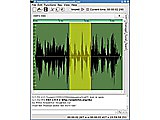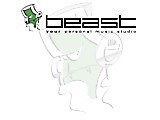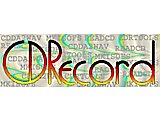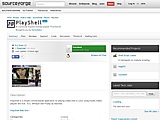 Sndio is a small audio and MIDI framework part of the OpenBSD project and ported to FreeBSD, Linux and NetBSD. It provides a lightweight audio & MIDI server and a fully documented user-space API to access either the server or the hardware directly in a uniform way. Sndio is designed to work for desktop applications, but pays special attention to synchronization mechanisms and reliability required by music applications. Reliability through simplicity are part of the project goals.
Sndio is a small audio and MIDI framework part of the OpenBSD project and ported to FreeBSD, Linux and NetBSD. It provides a lightweight audio & MIDI server and a fully documented user-space API to access either the server or the hardware directly in a uniform way. Sndio is designed to work for desktop applications, but pays special attention to synchronization mechanisms and reliability required by music applications. Reliability through simplicity are part of the project goals.
 Ratatouille is a Neural Model loader and mixer for Linux/Windows. It can load two models, which can be *.nam files with the Neural Amp Modeler module, or *.json or .aidax files with the RTNeural module. You can also load just a single model file, in that case the "Blend" control will do nothing. When you've loaded a second model, the "Blend" control will blend between the two models and mix them to simulate your specific tone. Ratatouille using parallel processing for the neural models, so, l
Ratatouille is a Neural Model loader and mixer for Linux/Windows. It can load two models, which can be *.nam files with the Neural Amp Modeler module, or *.json or .aidax files with the RTNeural module. You can also load just a single model file, in that case the "Blend" control will do nothing. When you've loaded a second model, the "Blend" control will blend between the two models and mix them to simulate your specific tone. Ratatouille using parallel processing for the neural models, so, l
 The Advanced Linux Sound Architecture (ALSA) provides audio and MIDI functionality to the Linux operating system. ALSA has the following significant features: Efficient support for all types of audio interfaces, from consumer sound cards to professional multichannel audio interfaces. Fully modularized sound drivers. SMP and thread-safe design. User space library (alsa-lib) to simplify application programming and provide higher level functionality. Support for the older Open
The Advanced Linux Sound Architecture (ALSA) provides audio and MIDI functionality to the Linux operating system. ALSA has the following significant features: Efficient support for all types of audio interfaces, from consumer sound cards to professional multichannel audio interfaces. Fully modularized sound drivers. SMP and thread-safe design. User space library (alsa-lib) to simplify application programming and provide higher level functionality. Support for the older Open
 EKO is small and simple sound editor based on Qt5/6, Portaudio, libsndfile and libsamplerate. It has basic editing, utility and analysis functions, the rack with realtime effects (not so much), GUI themes and palettes support.
EKO is small and simple sound editor based on Qt5/6, Portaudio, libsndfile and libsamplerate. It has basic editing, utility and analysis functions, the rack with realtime effects (not so much), GUI themes and palettes support.
 Play the healing frequencies of various sets of tuning forks: Solfeggio, Organs, Mineral nutrients, Ohm, Chakras, Cosmic Octave, Otto, Tesla 3-6-9, DNA nucleotides... or custom frequencies. It also shows a data visualization of all frequencies on the same scale.
Play the healing frequencies of various sets of tuning forks: Solfeggio, Organs, Mineral nutrients, Ohm, Chakras, Cosmic Octave, Otto, Tesla 3-6-9, DNA nucleotides... or custom frequencies. It also shows a data visualization of all frequencies on the same scale.
 liblo is an implementation of the Open Sound Control protocol for POSIX systems, started by Steve Harris and now maintained by Stephen Sinclair. It is released under the GNU Lesser General Public Licence version 2.1 or greater. This means that if it is included in closed-source systems, it must be dynamically linked such that the LibLO code remains freely modifiable.
liblo is an implementation of the Open Sound Control protocol for POSIX systems, started by Steve Harris and now maintained by Stephen Sinclair. It is released under the GNU Lesser General Public Licence version 2.1 or greater. This means that if it is included in closed-source systems, it must be dynamically linked such that the LibLO code remains freely modifiable.
 SoundTouch is an open-source audio processing library for changing the Tempo, Pitch and Playback Rates of audio streams or audio files. The library additionally supports estimating stable beats-per-minute rates for audio tracks. Tempo (time stretch): Changes the sound to play at faster or slower tempo than originally without affecting the sound pitch. Pitch (key) : Changes the sound pitch or key while keeping the original tempo (speed). Playback Rate : Changes both tempo and pitch together as i
SoundTouch is an open-source audio processing library for changing the Tempo, Pitch and Playback Rates of audio streams or audio files. The library additionally supports estimating stable beats-per-minute rates for audio tracks. Tempo (time stretch): Changes the sound to play at faster or slower tempo than originally without affecting the sound pitch. Pitch (key) : Changes the sound pitch or key while keeping the original tempo (speed). Playback Rate : Changes both tempo and pitch together as i
 Pydiogment aims to simplify audio augmentation. It generates multiple audio files based on a starting mono audio file. The library can generates files with higher speed, slower, and different tones etc.
Pydiogment aims to simplify audio augmentation. It generates multiple audio files based on a starting mono audio file. The library can generates files with higher speed, slower, and different tones etc.
 Beast is a music composition and modular synthesis application. As input methods, it offers a multitrack editor, a piano roll, and supports pattern editing. It has a wide range of technical abilities like sequencing, unlimited undo/redo history, real-time synthesis with multiprocessor support, full duplex 32-bit audio rendering, seeking at sample granularity, on demand loading of partial wave files, on the fly decoding of various sample formats, aliasing free oscillators, and full scripting supp
Beast is a music composition and modular synthesis application. As input methods, it offers a multitrack editor, a piano roll, and supports pattern editing. It has a wide range of technical abilities like sequencing, unlimited undo/redo history, real-time synthesis with multiprocessor support, full duplex 32-bit audio rendering, seeking at sample granularity, on demand loading of partial wave files, on the fly decoding of various sample formats, aliasing free oscillators, and full scripting supp
 cdrtools (formerly cdrecord) creates home-burned CDs/DVDs with a CDR/CDRW/DVD/BluRay recorder. It works as a burn engine for several applications. It supports CD/DVD/BD recorders from many different vendors; all SCSI-3/mmc- and ATAPI/mmc-compliant drives should also work. Supported features include IDE/ATAPI, parallel port, and SCSI drives; audio CDs, data CDs, and mixed CDs; full multi-session support; CD-RWs, DVD-R/-RW, DVD+R/+RW, BD-R/BD-RE; and TAO, DAO, RAW, and human-readable error message
cdrtools (formerly cdrecord) creates home-burned CDs/DVDs with a CDR/CDRW/DVD/BluRay recorder. It works as a burn engine for several applications. It supports CD/DVD/BD recorders from many different vendors; all SCSI-3/mmc- and ATAPI/mmc-compliant drives should also work. Supported features include IDE/ATAPI, parallel port, and SCSI drives; audio CDs, data CDs, and mixed CDs; full multi-session support; CD-RWs, DVD-R/-RW, DVD+R/+RW, BD-R/BD-RE; and TAO, DAO, RAW, and human-readable error message
 PlayShell is a simple console-based application for playing media files in Linux using known media players like SoX, VLC, MPlayer and FFplay as backend.
PlayShell is a simple console-based application for playing media files in Linux using known media players like SoX, VLC, MPlayer and FFplay as backend.
 GNU Solfege is *free* ear training software written in Python 3.4 using the Gtk+ 3 toolkit. The program is designed to be easily extended with lesson files (data files), so the user can create new exercises.
GNU Solfege is *free* ear training software written in Python 3.4 using the Gtk+ 3 toolkit. The program is designed to be easily extended with lesson files (data files), so the user can create new exercises.
|